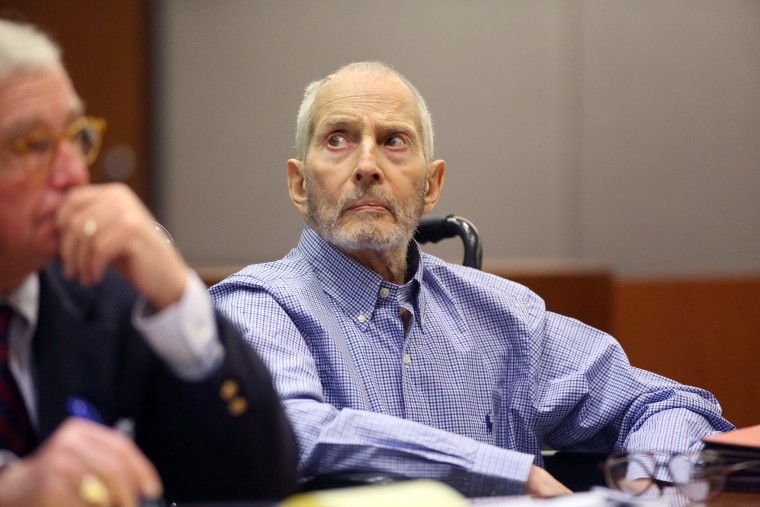In Los Angeles, the highly anticipated murder trial of real estate heir Robert Durst has been delayed — along with all other criminal and civil trials.
In Cleveland, judges are holding mass bail and plea hearings to reduce the number of people at risk of falling ill while behind bars.
In New Jersey, all new trials have been suspended, and municipal courts have been closed.
In Washington, D.C., the Supreme Court has postponed oral arguments, including its plans to hear a case involving President Donald Trump's efforts to block release of his tax returns.
Across the country, attempts to slow the spread of the deadly coronavirus have thrown the criminal justice system into disarray as officials try to limit large courthouse gatherings, including juries, while also making sure that people accused of crimes aren't deprived of their due-process rights.
Concerns about the outbreak seem to have hit a tipping point, with 27 states under orders to stop jury trials or restrict the number of people who can come to court, according to data collected by the National Center for State Courts as of Monday afternoon.
Some federal courts, including districts in New York and Washington, have also postponed trials.
"The only time we've heard of anything vaguely like this was after 9/11 or a hurricane, but that was only for a few days," said Bill Raftery, a spokesman for the center.
Full coverage of the coronavirus outbreak
The number of such orders is expected to continue rising in response to the Centers for Disease Control and Prevention's recommendation Sunday to avoid gatherings of more than 50 people, Raftery said.
On Monday, Trump recommended avoiding gatherings of 10 or more people.
While many aspects of the criminal justice system can be put off, others cannot, such as bail hearings, juvenile detention hearings, requests for temporary restraining orders in domestic violence cases and attempts to remove abused children from their homes. Laws granting defendants the right to a speedy trial generally have provisions that account for emergencies that made quick proceedings impossible, experts said.
Bail has become a particular focus of concern, because of the high risk of spreading the virus in jails.
A small number of jurisdictions have sought to reduce the number of people held in jail before trial. They include Cuyahoga County, Ohio, which includes Cleveland, where judges are holding special sessions to send more defendants home or to negotiate plea deals. In Philadelphia, District Attorney Larry Krasner said he is considering whether to allow more people to be granted bail. San Francisco District Attorney Chesa Boudin is reported to have told his prosecutors not to oppose motions to release people facing low-level charges.
In other jurisdictions, judges are conducting more bail hearings over video links to keep defendants from congregating in court.
Download the NBC News app for full coverage of the coronavirus outbreak
Norman Reimer, executive director of the National Association of Criminal Defense Lawyers, said he hoped the crisis would "accelerate the discussion about mass incarceration and the need to find ways to have fewer people imprisoned."
In the meantime, Reimer said, there is no clear sense in most jurisdictions of how they would deal with an outbreak behind bars. An inmate at the jail in Nassau County, New York, is reported to have tested positive for the coronavirus, and an employee of the New York City Department of Correction has died, officials said Monday. In both cases, officials said they were tracking who had been in touch with the infected people and working to contain the virus' spread.
Health experts say an outbreak in a jail or a prison is a question of when, not if.
"The ramifications could be catastrophic if not managed properly," Reimer said.
Duffie Stone, president of the National District Attorneys Association, said it was impossible to assess the impact of stripping the court system down to its necessary services, because there is no end in sight. He said he hoped the postponements wouldn't last longer than a month or so, but even that would cause delays to ripple through the system for much longer.
"I don't think anyone knows what the end result of this will be," said Stone, who is a prosecutor in South Carolina. "But nobody really has a choice."

